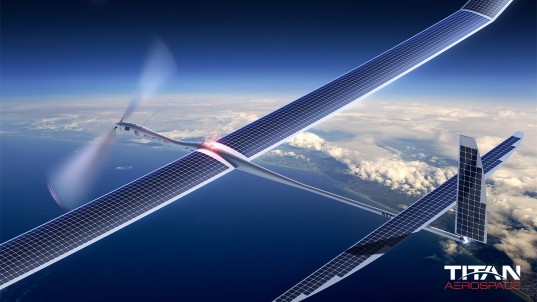Google has swooped in, stealing a deal to acquire Titan Aerospace from under the wing of Facebook who looked close to taking hold of the remote drone manufacturer little over a month ago.
Titan Aerospace develops and manufactures magnificent flying machines that can hoover for long periods of time and be used to deliver an internet signal from space based satellite. Facebook saw the company’s benefit, pitching the idea to spread the web to the very most remote parts of the world – this of course would ultimately mean more growth for the social network which already commands around 1.23 million active users monthly.
Titan Aerospace has broke the news of its purchase by Google on it’s website in a statement which reads:
“At Titan Aerospace, we’re passionate believers in the potential for technology (and in particular, atmospheric satellites) to improve people’s lives. It’s still early days for the technology we’re developing, and there are a lot of ways that we think we could help people, whether it’s providing internet connections in remote areas or helping monitor environmental damage like oil spills and deforestation. That’s why we couldn’t be more excited to learn from and work with our new colleagues as we continue our research, testing and design work as part of the Google family.”
Google’s plans for Titan Aerospace and its drones may be very different from Facebook’s however and as well as obviously expanding its reach as the leading web presence and largest search database it’s said that the internet and software company looks to develop and advance it’s photo imaging for services such as Google Maps – because let’s face it, very few of us, regardless of our global location, really get excited about connecting via their social offering, Google+. With a fleet of drones at its disposal, the sky’s no longer the limit for Google.
As of yet there’s no price on what Google paid to snatch the buyout but Facebook entrepreneur Mark Zuckerberg is known for throwing ludicrous amounts of money at potential investment (recently $16 billion for WhatsApp, for example) so whatever Google has offered we expect it’s going to be a hefty fee.

